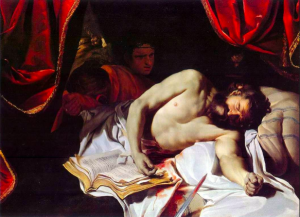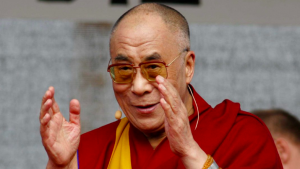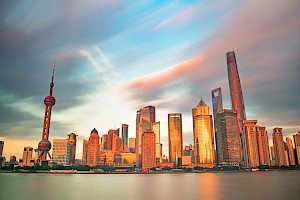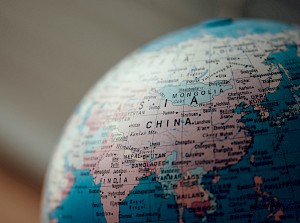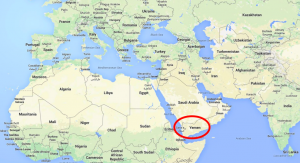The dangers of rewriting history in the name of ‘Glorious Leaders’
April 30, 2024Originally published in The Toronto Star on April 23, 2024 as contributing columnist
“Being powerful is like being a lady. If you have to tell people you are, you aren’t!”
Margaret Thatcher, Prime Minister of the United Kingdom, 1979 – 1990
It is a truism that history is written by the victors. One could also argue that it’s often rewritten as a kind of a refresher course when the truth becomes stale or the narrative needs tweaking, for geopolitical reasons.
And it usually goes hand in hand with the glorification of political leaders. Don’t get me wrong — there’s nothing wrong with patriotism. I love my country, but brainwashing is altogether different and dangerous. So, why do leaders feel the need to rewrite in the first place?
It’s simple: Control. In the days of hunter-gatherers, a king’s physical strength was enough to keep his tribe in line. As societies became larger and more sedentary, high priests claimed the power of God’s wrath to scare the populace into conforming. Eventually, kings hijacked the process, becoming deities themselves.
The first Mesopotamian ruler who declared himself divine was Naram-Sin of Akkad. Naram-Sin reigned sometime during the 23rd century BCE and claimed to take the title of “God of Akkad” at the request of his citizens.
As population centres grew and the rabble clued in to priestly magic tricks, so too did the evolution of control mechanisms. For centuries, the Roman Catholic Church exercised control by establishing itself as the sole conduit to God’s ear.
‘There’s something fishy about this story’
That worked well until Martin Luther challenged the Catholic Church’s role as intermediary between people and God, which set off the European wars of religion in Europe during the 16th, 17th, and early 18th centuries. Three hundred years of religious wars weren’t fought over the interpretation of scripture. It was about power and who had control over the people.
A more subtle method of exercising control is to foster nationalism, which begets loyalty.
I recall as a Grade 3 student in Argentina being taught the history of our country. Our equivalent to George Washington was the military leader, José de San Martín, liberator of both Chile and Argentina. We were told of his heroism, leading his men over the treacherous Andes mountains, and how he survived while a third of his 4,000 men perished.
Even as a nine-year-old, I recall hearing these accounts while studying San Martin’s portrait on the classroom wall and thinking, “there’s something fishy about this story.” He was riding a horse, while his men followed on foot. It’s no wonder he survived.
The stories resonated with me, instilling a sense of pride in my Argentine citizenship. On the topic of foundational myths, the tale of George Washington and the cherry tree, encapsulated by the phrase “I cannot tell a lie,” has been a cornerstone of American primary education since the early 1800s.
Rewriting history remains a popular tool in exercising power
This myth was popularized by Mason Locke Weems in his bestselling book on Washington’s life, notably only included in its fifth edition — likely an effort to boost sales. This story has since played a crucial role in shaping the moral framework through which many Americans view themselves, particularly in their claims to global leadership.
In the 20th Century, figures like U.S.S.R. leader Josef Stalin used propaganda to cement their leadership. Stalin ensured that propaganda always mentioned his leadership of the war; the victorious generals were sidelined and never allowed to develop into political rivals.
Scroll forward to today and we see ample evidence that glorifying leaders and rewriting history remains a popular tool in exercising power. Images of Russian President Vladimir Putin doing everything from petting a tiger or whale hunting have been lathered on the Russian people through state TV for years, cementing his image as a rugged man of action. Handicapped by the reality of being older, diminutive, and balding, he is shown shirtless on horseback, fishing, practicing Judo, and scuba diving in a quest to appeal to Russian’s admiration of masculinity in men.
But of all the recent antics, North Korea’s leaders take the cake, having the most outrageous myths said about them. According to his official biography, Kim Jong Il’s birth atop a sacred mountain saw a new star created and winter turn to spring. Or there’s my personal favourite, that he never needed to use a toilet because his body was so well calibrated, he didn’t urinate or defecate.
His son, Kim Jong Un is just as amazing as his father, according to North Korea state media, which revealed he was a gifted sailor as a youth and learned to drive at the age of three. He’s also a celebrated musical composer and artist. The list goes on.
Rewriting or embellishing one’s history is trending again, both in China and America, the two global powers vying for top spot in the global hegemony game.
China’s legislature just passed the Patriotic Education Law viewed as part of President Xi Jinping’s efforts to instil the Communist Party’s line in the minds of its youth. Education will cover areas such as ideology and politics, the beauty of the motherland, ethnic solidarity, national security and defence, and the deeds of heroes. Rallying a staggering 1.3 billion people around the flag might feel as a necessary objective for Xi Jinping as he consolidates power, but it also fosters anti-Western sentiment.
Instilling patriotism by tweaking historical facts
Likewise, across the Pacific, America’s leaders are attempting to instil patriotism by tweaking historical facts. In a bizarre whitewashing effort, Florida Gov. Ron DeSantis is attempting to de-emphasize racism in his state’s public-school curriculum by arguing that some Black people benefited from being enslaved, defending his state’s new African American history standards.
Conservatives in the U.S. are sounding the alarm about Critical Race Theory (CRT) in education. They claim that examining systemic racism and the history of race relations in the country “indoctrinates” students and causes feelings of undue guilt for historical wrongdoing.
Then there is the controversy surrounding the removal of historical monuments. Proponents cite historical analysis that the monuments were not built as memorials, but to intimidate African Americans and reaffirm white supremacy after the Civil War. Further, that they memorialize an unrecognized, treasonous government, the Confederacy. Opponents view removing the monuments as erasing history or a sign of disrespect for heritage.
When Donald Trump was president, he announced that he was signing an executive order to establish the “1776 Commission,” a group that would “promote patriotic education,” and that the National Endowment for the Humanities would be awarding a grant to support the development of a “pro-American curriculum that celebrates the truth about our nation’s great history.” Under his plan, he said, “Our youth will be taught to love America with all of their heart and all of their soul.” Slavery, the genocide of Native Americans and historical facts be damned. As long as we feel good about ourselves.
Being honest about our historical narratives is crucial. It is essential to learn from our mistakes to avoid repeating them. When we hide the truth, we are guided by a lie that will put us on a perilous path to perdition.
History has shown often that when great powers develop nationalistic fervour, wars shortly follow. Both the U.S. and China are in the beginnings of a nationalism-driven arms race with its first casualty being the truth.
Critical thinking is needed now more than ever.

